- Home
- Tarryn Fisher
Atheists Who Kneel and Pray
Atheists Who Kneel and Pray Read online
Copyright © 2017 by Tarryn Fisher
All rights reserved.
Visit my website at www.tarrynfisher.com
Editor and Cover Designer: Ellie McLove
Interior Designer: Jovana Shirley, Unforeseen Editing, www.unforeseenediting.com
No part of this book may be reproduced or transmitted in any form or by any means, electronic or mechanical, including photocopying, recording, or by any information storage and retrieval system without the written permission of the author, except for the use of brief quotations in a book review.
This book is a work of fiction. Names, characters, places, and incidents either are products of the author's imagination or are used fictitiously. Any resemblance to actual persons, living or dead, events, or locales is entirely coincidental.
For Serena
So much love
Part One: The E-Mail
Chapter One: The Splinter
Chapter Two: Cities
Chapter Three: Bar Life
Chapter Four: The Jane
Chapter Five: Third Time’s a Charm
Chapter Six: Relentless
Chapter Seven: The Crocodile
Chapter Eight: The Car
Chapter Nine: Ruined Date
Chapter Ten: SAM
Chapter Eleven: The First Time
Chapter Twelve: Coffee
Chapter Thirteen: Why
Chapter Fourteen: Crepes
Chapter Fifteen: Dinner Date
Chapter Sixteen: Types
Chapter Seventeen: Beanie Girl
Chapter Eighteen: Petra
Chapter Nineteen: Drinks and Doubt
Chapter Twenty: Happy Birthday, Petra
Chapter Twenty-One: Addiction
Chapter Twenty-Two: Deep Sleep
Chapter Twenty-Three: Mother Mother
Chapter Twenty-Four: Monday Memo
Chapter Twenty-Five: Marriage
Part Two: The E-Mail
Chapter Twenty-Six: I Remember
Chapter Twenty-Seven: Trashy E-Mails
Chapter Twenty-Eight: Fangs
Chapter Twenty-Nine: Beggars
Chapter Thirty: Looking
Chapter Thirty-One: The Past Comes Back
Chapter Thirty-Two: Meet the Folks
Chapter Thirty-Three: The Wedding
Chapter Thirty-Four: The Case
Part Three: The E-Mail
Chapter Thirty-Five: Watermelon
Chapter Thirty-Six: Skylight Sex
Chapter Thirty-Seven: Bronte
Chapter Thirty-Eight: Slow Rotation
Chapter Thirty-Nine: The Flat
Chapter Forty: I Rise
Chapter Forty-One: Bad Reunion
Chapter Forty-Two: Backpedaling
Chapter Forty-Three: Best American Accent
Chapter Forty-Four: 49
Chapter Forty-Five: Leicester Square
Chapter Forty-Six: Same Old Yara
Chapter Forty-Seven: The Gypsy’s Cup
Chapter Forty-Eight: Empty-Handed
Chapter Forty-Nine: Bath
Chapter Fifty: The Ocean
Chapter Fifty-One: Newsworthy
Chapter Fifty-Two: To Shit
Chapter Fifty-Three: IOU
Chapter Fifty-Four: Ferdinand
Chapter Fifty-Five: Houseboat
Chapter Fifty-Six: Don’t Lie to Me
Chapter Fifty-Seven: Pink Camo
Chapter Fifty-Eight: Almost
Acknowledgments
Contact
Dear Yara,
The band’s in London November 12th. Want to catch up?
David
So casual. So nonchalant. You’d think we were only acquaintances, that we’d once sipped a couple of beers together instead of tattooing love on our skin and reciting marriage vows. I read the e-mail again and analyze the shit out of it. How can I not? I count out the words: thirteen. The punctuation: four. His name, my name. They used to go together. A flippant, casual turn of the phrase: catch up. In the end, there’s only so much psychoanalyzing you can do to a thirteen-word e-mail. I move on with my life, feeling rather pathetic. But not before I e-mail him back. And okay, sure, I don’t move on with my life. I am stuck. What does moving on entail? Forgetting? Forgiving? Being happy? Besides, I know what he wants to talk about. I know why he’s coming.
Hi David,
Yeah, sounds good. Let me know when and where.
Yara
My e-mail is a word shorter.
I’m that petty.
The first time I saw him I had a splinter in my finger. I was wiping down the bar and there was a nick in the wood. My thumb happened to be in the wrong place at the wrong time. I yelped and held my finger up to my face to assess the damage. A sizable sliver of dark brown was buried in the pad of my thumb. You could see it from the outside and feel it from the inside.
“Let me see it,” he said, sliding into a bar stool and holding out his hand. It was something a family member would do, or perhaps even a friend.
“See what?” I asked, looking around. I knew exactly what he was asking to see, but I wasn’t about to let a strange man touch me. Where had he come from? I didn’t even know we were open yet.
It was the morning after Thanksgiving and it was eerily quiet in the city, everyone gone for the long weekend. Perhaps he was someone’s friend—the manager or one of the cooks. He wiggled his fingers impatiently at me and I stepped forward to place my hand in his. I don’t know why I did it. But, it was early and I had a hangover. I was lulled by the day off and feeling less hostile than usual. He held my hand up to the light and nodded. It reminded me of a surgeon looking at an x-ray.
“Hand me that duct tape,” he said.
I looked around. What duct tape? This was a restaurant, not a hardware store. But there it was; a roll of duct tape behind me, wedged in a wine locker. I hadn’t noticed it before. I glanced back at him, my eyebrows raised.
“Do you want the splinter out or not?” he asked, tilting his head to the side. I grabbed the tape and handed it to him, more curious than in need of help. He used a pocketknife to slice a strip of it off the roll, one of those red Swiss Army things, then he applied the strip right over the splinter and put pressure on it until I flinched.
“What are you doing?” I asked.
“Sh.” He had full lips, puckered to shush me. He looked up suddenly; his eyes were a soft, green. A warm flip in my belly let me know I was interested. No. Nope. I pushed the feeling away.
“Courage,” he said, with a small grin.
The tape was yanked off and I made an embarrassing noise despite the fact that it didn’t hurt. As soon as he let go of my hand, I lifted it to my face. The splinter was gone, the little sliver of it stuck to the tape. Pure genius.
“Hey there, MacGyver,” I said, studying my finger. “Can I buy you a beer?” I asked. “For saving my life.” It was a generous offer. If you bought men a beer, they thought you wanted to fuck them.
But, the guy—splinter guy—was already on his feet and picking up his jacket to go. He had a look I’d come to familiarize with Seattle: honest eyes, a beanie, plaid. Personally, I liked a little more structure around men, maybe in the form of a business suit. But, the more you looked at the guy, the more attractive he became. I stopped looking.
“I have somewhere to be,” he said, glancing at his watch. “Maybe another time.”
I stared after him, confused. Why come into a bar if you had somewhere else to be? He’d taken the duct tape and my splinter with him. The doors opened once more and a couple walked in just as he walked out. I didn’t have time to think on it anymore, the lunch shift was starting.
I am in love with cities. All of them. E
ach one had their own thing going on, a unique spice they add to the world, but they all had one thing in common: energy. The frantic movement of cars, and buses, and people as they avoid collisions. The street food, greasy and paper wrapped—sold from trucks, and rusted carts, and metal fryers that hiss and steam in the middle of the sidewalk. Everyone had somewhere to be, and it all happened in a speed walk. Peacoats, rain boots, cell phones, the spray of water as it tussled with a tire. It was beautiful in all of its distracted, impatient ire. People came to cities to thrive. They hooked themselves up to the blood flow and tried to live their best lives. Sometimes it worked out and sometimes it didn’t. For me, it had always worked out, but my expectations were low.
My current city: Seattle. I crossed 4th in a pack, all of us moving together like fish in a current. Some of us had our headphones in, some were looking down at phones, or shoes, or regrets. I was focused, eyes ahead, teeth grinding. I had to be at work early again. I still wore the remnants of last night’s eyeliner, a battered black line that used to have wings. I looked down at my finger. You couldn’t tell there’d ever been a splinter underneath my skin. How many minutes had our exchange been? Five…ten? Yet this was the fourth time I’d thought about him since he’d come into the bar yesterday.
It was just all so strange, I told myself. That’s why I was thinking about it. And who wouldn’t be thinking about a stranger who showed up out of nowhere and used duct tape to pull a splinter out of their finger? I was so distracted that I stepped out into the street in front of a car. The driver slammed on his brakes and I lifted a hand in apology.
Unlike New York, in Seattle, there was an absence of car horns. Reserved and polite liberals maneuvered their cars politely through the traffic, their Starbucks sitting in cup holders beside them. The driver—a man in his mid-thirties nodded in a way that said we all makes mistakes—and waited for me to clear the road.
The air smelled wet and mossy. I bought a bag of Cheetos and a newspaper from the corner store, my morning ritual. I paid with a ten and the clerk dropped three dollars and thirty in my hand. On my way out I handed my change to the homeless woman who sat outside the store. Six days a week my three dollars and thirty cents was put into her hands, a consistency I felt we both needed. She lifted her eyes and nodded at me and my heart swelled. I was the only one she looked at, and this simple gesture made me inexplicably happy. For everyone else her eyes were downcast, glued to the sidewalk. I unfolded the paper as I walked, the headlines glum. People at work made fun of me for my newspaper obsession. Just look on your phone like the rest of us—they’d say. But, I liked the smell of the paper and the black smudges the ink left on my fingers. For someone who moved around every six months, there was something rewarding about doing the same thing every day. Creating your own ritual. Besides, technology couldn’t replace class. I opened the door to The Jane and everything felt normal and right. The spot on my finger where the splinter had pierced my skin throbbed lightly.
I opened my Cheetos and swapped it out with yesterday’s bag, which was also open and propped next to the beer taps. I got in trouble all the time for leaving open bags of Cheetos around the restaurant.
“Roaches,” the managers said.
But, they needed to be aired out just the right amount to get stale—which is the only way I’d eat them. Besides, it was winter. There were no roaches. I popped one in my mouth.
“Stale enough?” one of the servers asked as they walked into the bar and saw the bag. I shrugged. They weren’t. A good bag of Cheetos needed to sit open for a week before they were just the right amount of stale, but I made do.
After my Cheetos breakfast, I readied the bar. For the last week, I’d been making the transition from the dinner shift to the lunch shift and everything felt wrong. My job every night was to close down the bar so it was ready for Dean the daytime bartender, but Dean had accepted a management position at The Jane—a salary and insurance—he told me proudly, and I was now needed a few mornings a week until they trained someone new. Dean’s promotion had disrupted my daytime sleep patterns and forced me to go to bed at a regular time like a regular person. I didn’t like the way that made me feel—being regular. I was resentful and over-rested.
I unwrapped containers of sectioned lemons and limes and filled the ice bins. It felt as if I was doing everything in reverse (at night I wrapped containers and emptied the ice bins). Every few minutes Dean texted me a reminder of something I needed to do. I turned my phone off to make it stop. The morning manager, Nate, fancied me. He was always hanging around, asking questions about my life outside of the bar. He watched me dump ice into the metal bin, his elbow resting on the far end of the bar, making comments about the soccer game playing on the television like I cared. He had a bald spot and smelled of cheap cologne and onions. I didn’t blame him for the onions, smelling like grease and onions was the downfall of a restaurant job. I blamed him for being a sleazebag and always looking at my tits.
I ignored him until the first customers arrived, and then I had to ask him for a swipe. He watched my lips as he slid his card through the reader.
“You liking your new role, Yara?”
“As morning bartender?” I asked. “Feels exactly the same as night bartender, except the guests are happy and talkative. I like them better when they’ve been working all day and are miserable and quiet.”
“Sure, sure,” he said. “It’ll just take some getting used to s’all.” Nate pronounced is all as saul.
“You have a little bit of orange on your face,” he said, gesturing to my cheek. I dusted it off without thanking him.
The Jane was well known for her breakfast cocktails so there was no avoiding early customers. A couple wandered in a few minutes after we opened, middle-aged and glassy-eyed. Their faces were puffy like they’d been drinking hard the night before. They ordered eggs, toast, and two spicy Bloody Marys, and then they told me about the son they dropped off at the University of Washington. A handsome boy, so smart, a future president, they assured me. His major—political science. When the woman told me he was captain of his high school debate team I wanted to gouge out my eyeballs with a toothpick. I once fucked a debate team captain, his name was a cheese—Colby…or Jack…or…Rodoric! That was it! I didn’t tell her that though. What was a pretty girl like me doing working in a bar? —they wanted to know. This was the hard part, blowing off their question like it didn’t bother me when it really did. Did I want a good tip, no customer complaints e-mailed to corporate? No, I just wanted to make it through this day, this month, this year. You should model, she said. Her husband nodded in agreement. I smiled dumbly and excused myself to get their food from the kitchen. I was not a face. I was tired of being called pretty. I was tired of people seeing my potential. I could be whoever I wanted to be, and for now, that was a bartender. Beauty was deceiving in the same way credit cards were. It felt like it was free, but there was high interest with little return. I breathed a sigh of relief when they left, but soon a different couple took their seats. Then another, and another, until it all blurred together. The morning crowd was hopeful and hungry for talk, their days not descended to shit yet.
The Jane reminded me of home. The tables and chairs were a glossy white set on top of grey concrete floors. Each one held a tiny succulent in a grey pot, which the headwaiter, Lora, lovingly took care of. A guest once tried to walk out with one of them and Lora had chased them down the street yelling in Bulgarian until they sheepishly handed it back to her. No one messed with Lora’s succulents. The bar was modern and impressive. A neon pink sign that said Are you the creator or the created? —lit up one expansive white wall. “Very European,” I heard the guests say as they examined the space. Europe: pink and white and neon! I would think, smiling to myself.
It was defiant of the typical restaurant/bar scene in Seattle, which veered toward a chic grunge look. I took it that Kurt Cobain still had his fingers in everything, even from the grave. My home was London, an unparalleled city in every wa
y. But, I was still searching, whoring around America till I burned off my emotional baggage. I wasn’t ready to go back yet.
I was carrying in a tray of glasses, which I had poached from the dishwasher, when I saw him. He was scooted in at the far end of the bar, the place we call no man’s land. His elbows rested right next to the container of maraschino cherries and olives I used to spruce up the drinks. I sighed because he looked like a talker. And then I recognized him. Splinter guy! I felt self-conscious and wished I’d put on fresh eyeliner this morning. Drew on new wings.
“Splinter guy!” I said.
“Oh, ouch. I’ve had better nicknames.” He grinned at me. He looked sleepy, like he’d either just rolled out of bed or he hadn’t seen one in a while.
“You ran off pretty quickly the other day,” I said. “I barely had time to thank you.”
“I had a…thing.”
“A thing?” I repeated, a half smile on my lips. It was funny when men described their philandering as a thing.
I moved a tray of freshly filled salt shakers to a different spot on the bar to make room for the rack of glasses, and gave him a sideways stare.
“You’re nosy,” he said.
I shrugged like I wasn’t and started setting the shakers on the tables.
“Okay,” he said, defensively. “There was a thing with this girl. But, I’m not seeing her anymore. It’s over.” He said “over” with a large amount of relief. I finished setting out the salt shakers and dusted my hands, watching his face.
“Why is it over? What did she do that wasn’t to your liking?”
He didn’t hesitate to answer, which surprised me since he’d just called me nosy.
“She thought we were more serious than we were. I told her in the beginning that I wasn’t looking for a relationship.”
“Right,” I said. “How many months ago was the beginning?”
“Six.” He shrugged.
“So you’re seeing this girl for half a year, fucking her I assume—”

 Jackal
Jackal F*ck Love
F*ck Love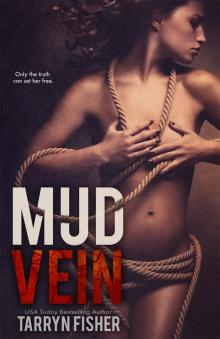 Mud Vein
Mud Vein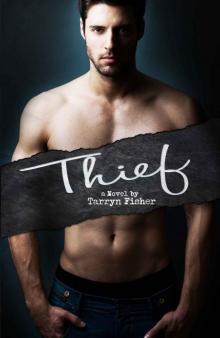 Thief
Thief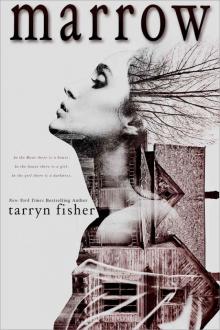 Marrow
Marrow Dirty Red
Dirty Red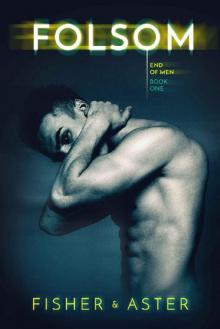 Folsom
Folsom The Opportunist
The Opportunist Atheists Who Kneel and Pray
Atheists Who Kneel and Pray Bad Mommy
Bad Mommy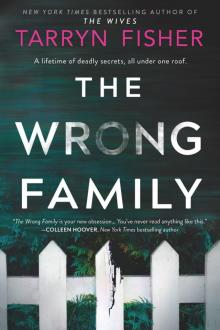 The Wrong Family
The Wrong Family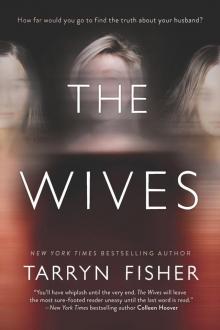 The Wives
The Wives Jackal (The End of Men Book 2)
Jackal (The End of Men Book 2)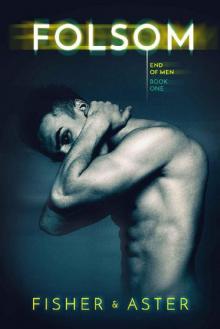 Folsom (The End of Men Book 1)
Folsom (The End of Men Book 1)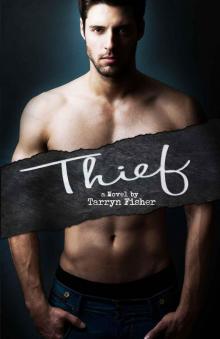 Thief (Love Me With Lies #3)
Thief (Love Me With Lies #3)